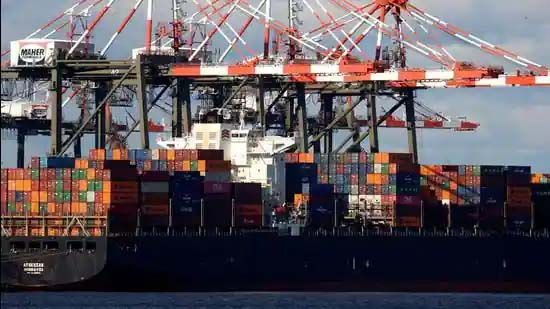Nisha Biswal, a former top US diplomat for India and head of the US-India Business Council, says that the upcoming meeting of the India-US Trade Policy Forum will set the framework for trade discussions on key areas of cooperation and alignment could create a path towards a Free Trade Agreement (FTA).
Nisha Biswal also welcomed India’s willingness to negotiate an FTA. “Let me just welcome the much more positive and forward leaning stance that the Indian government has brought on the issue of free trade as someone who has been talking about the roadmap to an FTA for over a decade,” Biswal said in an interview. “There has never been in the past much of an appetite in India for an FTA certainly not with the United States, there was always a feeling that an FTA was going to disadvantage Indian companies and open up the Indian market too much to the US.”
The trade policy forum, which is the top platform for India-US trade talks, will meet for the first time in four years this week when US trade representative (USTR) Katherine Tai is in New Delhi to meet commerce and industry minister Piyush Goyal and other officials.
I believe that this will be the first trade policy forum in about four years. I think there was perhaps one at the very beginning of the Trump administration and then you know, we didn’t have one to do that. So, part of her focus from what I have been told in my conversations with USTR, really is to restart this process and to deepen kind of the institutional relationships and, you know, the frequency and the focus of these gatherings. And that’s a good thing.
Where I would, perhaps challenge both governments and challenge trade representative Tai and minister Goyal is that process is important insofar as it advances goals and outcomes. And so, you’ve got also set some ambitious goals for where you want to go. What are the priority sectors? The Indian government has conveyed that it is open to the desirous of, you know, embarking on a (path) towards a Free Trade Agreement, which I think is a laudable goal and a worthy goal and unnecessary goal.I don’t have an expectation. Do I think that both sides could have some important areas of an agreement that they could announce? I think that they could. I think a lot of work has been done over the years to try to come to some set of agreements around price controls on medical devices. A lot of work has been done on certain kinds of ICT (information and communications) tariffs. There are issues that the Indian government has raised that could be discussed, you know, I think, on GSP (Generalized System of Preferences), and, you know, I know that we don’t have an ability to reinstate GSP until Congress actually acts on it. Nonetheless, you know, there can be some conversations had there that would allow for certain understandings. So, I don’t preclude that there could be some things coming out of it. And we would welcome and encourage that. But what I’m saying is I don’t know that this is what either government wants to focus on. I think that what they want to do is get the framework right for how they’re going to take it forward.
I don’t think that there’s anything that precludes them from being able to get some kind of an outcome, right. A big chunk of the mini-deal hinged upon the restoration of GSP (President Donald Trump terminated India’s GSP benefits in 2019). GSP right now has lapsed as an entire programme has lapsed, right. So, it needs to be reauthorised by Congress. I think minus GSP it probably limits how much or what India is willing to put on the table in terms of what it gets back. So, the parameters of the mini-deal that existed are not currently in existence.


